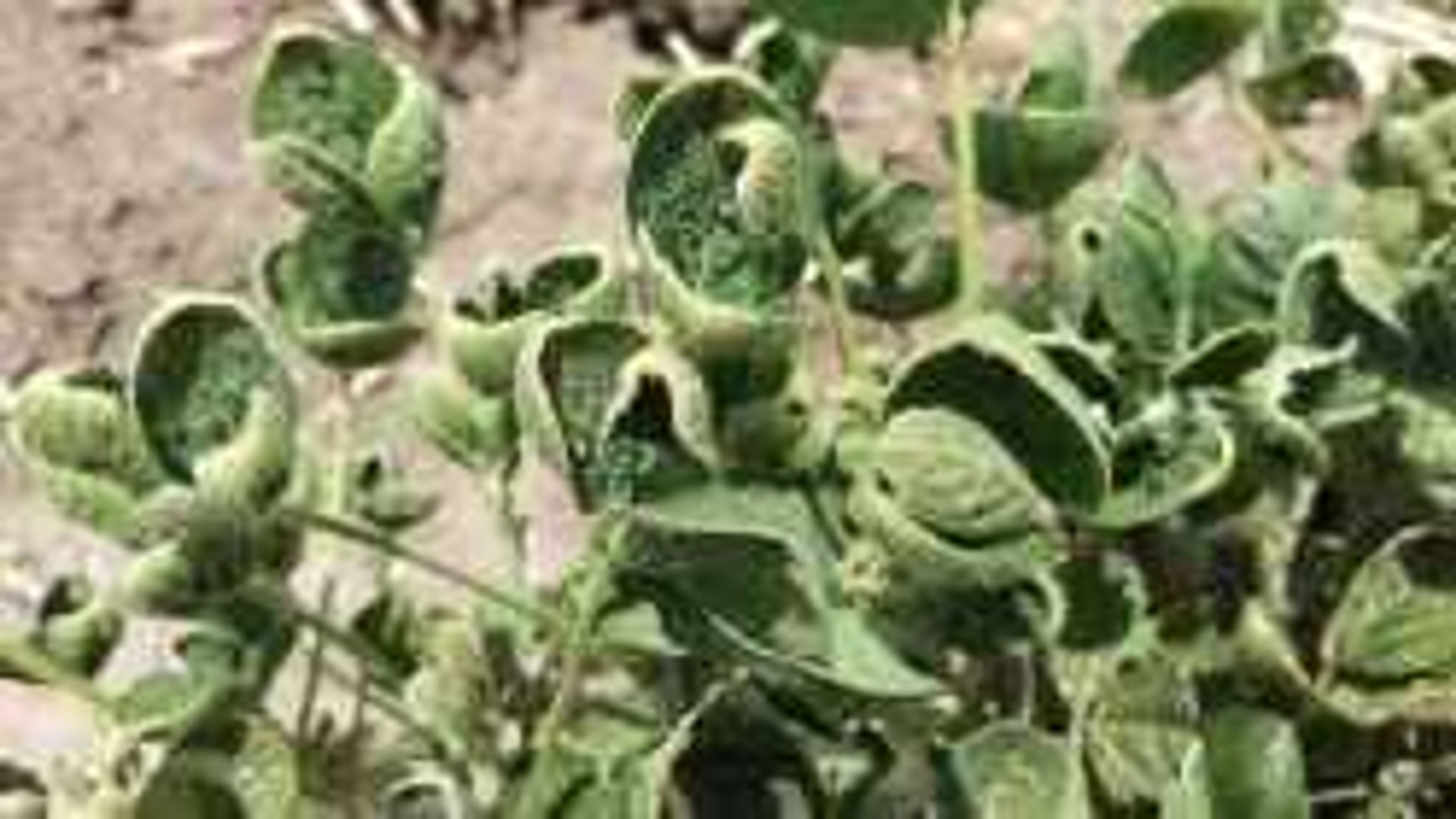Jury awards $15 million in dicamba case
A federal jury in Cape Girardeau ruled Friday the herbicide dicamba killed or damaged thousands of peach trees in Southeast Missouri and has ordered two of the nation's largest agriculture chemical companies to pay $15 million in damages. The jury's verdict capped a three-week trial and four hours of deliberations in the lawsuit brought by Bader Farms Inc. ...
A federal jury in Cape Girardeau ruled Friday the herbicide dicamba killed or damaged thousands of peach trees in Southeast Missouri and has ordered two of the nation's largest agriculture chemical companies to pay $15 million in damages.
The jury's verdict capped a three-week trial and four hours of deliberations in the lawsuit brought by Bader Farms Inc. of Campbell, Missouri, against Monsanto Co. and BASF Corp. The suit claimed dicamba-based herbicides "drifted" from other farms onto the Bader orchards, owned by Bill and Denise Bader, beginning in 2015 when dicamba was illegally sprayed on farmland surrounding the Bader farm.
The lawsuit also asserted Monsanto and BASF conspired to produce a dicamba-tolerant cotton and soybean seed system in an effort to boost sales while simultaneously damaging crops susceptible to dicamba.
"Dicamba is very good at killing things," attorney Billy Randles, representing Bader Farms, told the jury in his closing arguments Friday morning. "And Bader Farms had a non-dicamba resistant crop."
The case is believed to be the first lawsuit involving illegal spraying of dicamba to protect Monsanto's Xtend cotton and soybean seeds.
"This (the dicamba-tolerant seed system) is the first product in the history of the United States that literally destroys the competition," Randles told the jury.
Testimony during the trial indicated the annual peach yield at Bader Farms, Missouri's largest peach grower, had declined from an average of more than 162,000 bushels a year between 2002 and 2006 to only a fraction of that in recent years. While Bader and his attorneys agreed some of the crop losses were due to hail, frost and other causes, they and their experts maintained was a key contributing factor to production declines in recent growing seasons.
"Infected areas" were showing up in the orchards years before dicamba was introduced," Monsanto attorney John Mandler said in his closing statement.
Chemical and agricultural experts called on behalf of Monsanto and BASF attributed the damage to the Bader peach trees on a wide of causes ranging from weather conditions and poor farm management to root rot.
"Armillaria root rot, that's what's causing the yields to go down, over time, at Bader Farms," Mandler said.
The jury did not agree and neither do many other farmers, some of whom packed into the standing-room-only courtroom to hear the closing arguments and witness the jury verdict.
In recent years, crop damage from herbicide drift has prompted farmers to file hundreds of complaints across the country with state agriculture departments and the U.S. Environmental Protection Agency. Many of those complaints have originated in Southeast Missouri and Northeast Arkansas.
Bader Farms filed suit against Monsanto in 2016 in Dunklin County. The case was later moved to federal court and in October 2017 the suit was amended to include claims against BASF, maker of the dicamba-based herbicide Engenia. The suit sought $20.9 million in damages based on past and future crop losses.
Neither Bader nor the attorneys in the case were able to comment on the verdict Friday because the trial will not end until after the punitive phase is completed Saturday. During the punitive phase, the jury will decide whether Monsanto and BASF are liable for any additional monetary damages beyond the actual damages incurred by Bader Farms.
Do you crave business news? Check out B Magazine, and the B Magazine email newsletter. Check it out at semissourian.com/newsletters to find out more.
Connect with the Southeast Missourian Newsroom:
For corrections to this story or other insights for the editor, click here. To submit a letter to the editor, click here. To learn about the Southeast Missourian’s AI Policy, click here.










